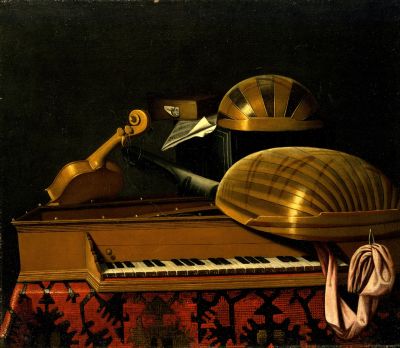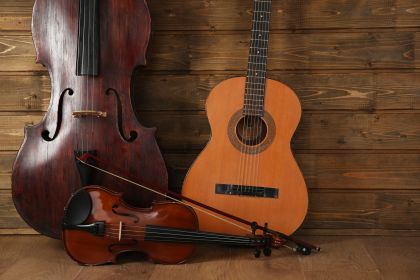Classical Guitar
Lute fell into obscurity after the death of its greatest maestro

Still Life with Musical Instruments and Books by Bartholomeo Bettera
Silvius Leopold Weiss (1687–1750) was one of the most important composers in lute music history. Born into a lute-playing family, he became one of the best-known and most technically accomplished lutenists of his day.
His huge output includes around 600 pieces for lute, most of them grouped into suonate (Weiss' own term) or suites, which consist mostly of Baroque dance music. However, only one of these lute work appeared in print during Weiss' own life by reason of his music not being intended for amateur players but for virtuosi whose skills approached his own.
Traveling extensively in Europe at an early age, he spent most of his life in Dresden, where he decided to settle into a lucrative post offered him at the court of Dresden in the famous orchestra of the Saxon elector and King of Poland, August the Strong.

Silvius Weiss' skill as a player and accompanist was legendary, as were his powers of improvisation. He was even compared to J.S. Bach as the following account by composer Johann Friedrich Reichardt describes:
"Anyone who knows how difficult it is to play harmonic modulations and good counterpoint on the lute will be surprised and full of disbelief to hear from eyewitnesses that Weiss, the great lutenist, challenged J. S. Bach, the great harpsichordist and organist, at playing fantasies and fugues."
Listen to Silvius Weiss' Passacaille guitar transcription by Göran Söllscher:
Weiss' music is characterized by a unique understanding of the capabilities of his instrument and represents the culmination of a high Baroque style. He was—and—still is regarded as the greatest of all lutenists, and even the instrument fell into decline within a few decades of his death.
An evaluation by the Markgrafin Wilhelmine de Bayreuth, sister of Frederick II of Prussia and herself a composer, would serve well as an epitaph:
"[Weiss] excels so much in playing the Lute that no one has ever matched him, and those who will come after him will only be left with the glory of imitating him."



